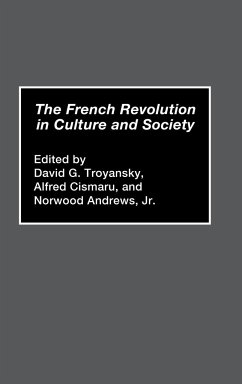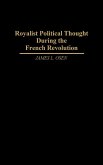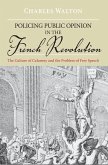This volume examines the issue of the timing of cultural change, problems of Revolutionary anticipations and reverberations, and the relationship between culture, politics, and society. Individual essays combine both old and new approaches, ranging from textual analysis to the study of local judicial records, from the psychohistorical to the demographic. But they all demonstrate the usefulness of linking social and cultural history, broadly conceived, and of interdisciplinary approaches to the study of events. Part One addresses directly the creation of French Revolutionary culture. The contributors describe the physical act of dismantling and redefining the culture of the Ancien Regime for revolutionary purposes, new conceptions of time, and generation relations in Revolutionary rhetoric and law. The second part identifies key cultural ingredients from the distant past. It reminds us of the extent to which the Revolution employed the huge storehouse of Western culture to create something original. Because the creation of a democratic culture implies a crisis of consciousness, Part Three brings together a range of investigations into the question of cultural crisis. Three essays see the Revolutionary era as engendering psychological dislocation. In Part Four, social historians reveal the variety of approaches they have taken in trying to understand eighteenth century France. The varied contributions exploit the sources that have become the stock-in-trade of modern social history. Poverty, crime, and population are among the leading topics in current historiography, but military and political institutions are also examined in new ways. This edited collection provides new insights into a critical period of world history and will be welcomed by all scholars of the French Revolution and its aftermath.
Hinweis: Dieser Artikel kann nur an eine deutsche Lieferadresse ausgeliefert werden.
Hinweis: Dieser Artikel kann nur an eine deutsche Lieferadresse ausgeliefert werden.








